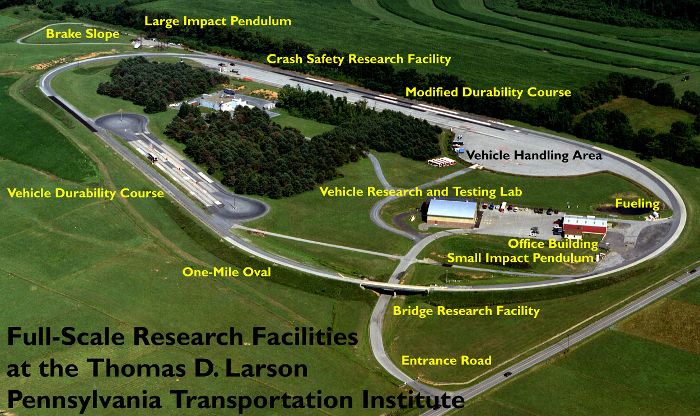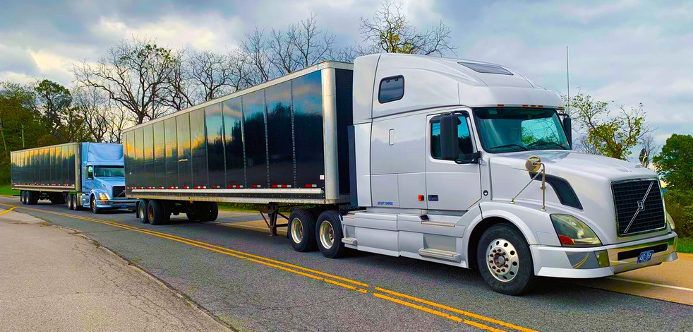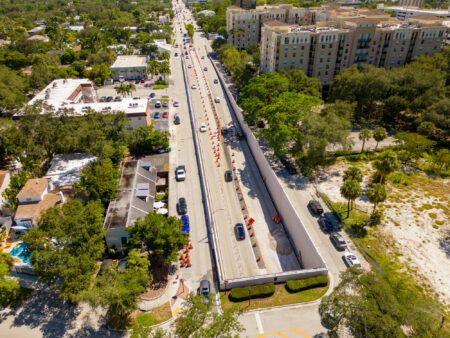Penn State University has revealed its role as one of seven key partners participating in a Federal Highway Administration (FHWA) project that will be used to help industry and agency partners understand how truck platoons operate in realistic, operational environments.
Penn State’s involvement in Phase 1 of the FHWA’s Truck Platooning Early Deployment Assessment program will be through its Thomas D Larson Pennsylvania Transportation Institute (LTI). The project will be led by Battelle, a global research and development organization, and funded by the USDOT’s Intelligent Transportation Systems Joint Program Office (ITS JPO) in cooperation with the FHWA and Federal Motor Carrier Safety Administration (FMCSA). Other key team partners include the Center for Automotive Research, SAE International, Saia LTL Freight, Volvo Group and the University of Michigan Transportation Research Institute (UMTRI).
From now, through to the end of November, the team will perform detailed planning and team building to develop proposals for consideration during Phase 2 of the project. If awarded a contract to participate in Phase 2 of the project, the team will then execute plans, collect data, and conduct evaluations of truck platoons driven by professional drivers delivering commercial goods. With proposed platooning locations set to include Indiana, Ohio and Pennsylvania, LTI will work closely with the Pennsylvania Department of Transportation (PennDOT) and Pennsylvania Turnpike Commission (PTC) during deployment.
Truck platoons or connected convoys have the potential to increase both road capacity and fuel efficiency. The adoption of autonomous driving technology could boost these benefits even more. The FHWA notes that previous research has resulted in the development of truck platooning technology with only limited testing and demonstration in a real-world environment. This new project will provide valuable insight into actual truck platooning operations on public roads that can be used to inform government on future regulations and deployment.

“This type of research is extremely important in order to accurately assess how truck platooning will impact safety, efficiency and mobility,” explained Sean Brennan, LTI affiliated faculty member and professor of mechanical engineering at Penn State. “To date, most testing of connected and autonomous vehicles has been done using one vehicle, typically a passenger vehicle. This project will provide a better understanding of the behaviors and improvements achieved when automation and communication systems are given more interaction across groups of vehicles, or a platoon, in this project. In a truck platoon, for example, this may require coordinating the braking between vehicles, which enables closer spacing than a human can achieve with normal reaction times, resulting in greater fuel savings and emissions improvements than conventional driving.”
Brennan added, “During Phase 1, we will define the types of testing we wish to do, given present capability in trucks, infrastructure communication systems, sensing and data management. We’re particularly sensitive to the training of, and need for, human truckers who will be an integral part of the system’s behavior for the foreseeable future. The drivers will still be making decisions about when to engage and disengage functionality such as cruise control, anticipating traffic situations ahead, such as construction and congestion, and evaluating system health, such as breakdowns and faults, inclement weather or poor road conditions.”





